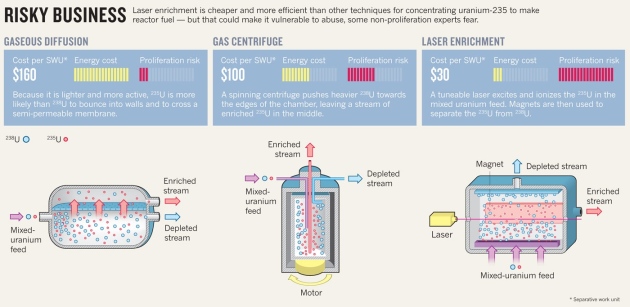
Another voice has been added to the laser enrichment debate: an editorial in the science journal Nature argues that the NRC’s decision to approve issuance of an operating license to GE-Hitachi for a laser enrichment facility was “unfortunate”, and that “The NRC should introduce rules to ensure that its future moves are better informed.”
The editorial continues, opining that, while the NRC considered physical security in its license review, it did not “explicitly address the existential threat a plant might post to the non-proliferation regime, not did it concern itself with the message that the pursuit of this technology might send to other nuclear nations….To consider something as vague as proliferation might seem beyond the remit of a regulator, but it is not.”
That view, of course, is consistent with the one I have been promulgating in a number of previous posts and one that has been the subject of a petition being led by the American Physical Society.
The historical highway is littered with myriad missed opportunities and 20/20 hindsight about how things could have been different. If only A.Q. Khan had been denied access to plans while at Urenco, then perhaps Iran, Syria and North Korea wouldn’t have the enrichment plans they have. If only gas centrifuge technology hadn’t been commercialized, then perhaps North Korea wouldn’t have been able to built an indigenous version of it.
In this case, the NRC clearly chose not to look into that rear view mirror. And Nature clearly concurs.